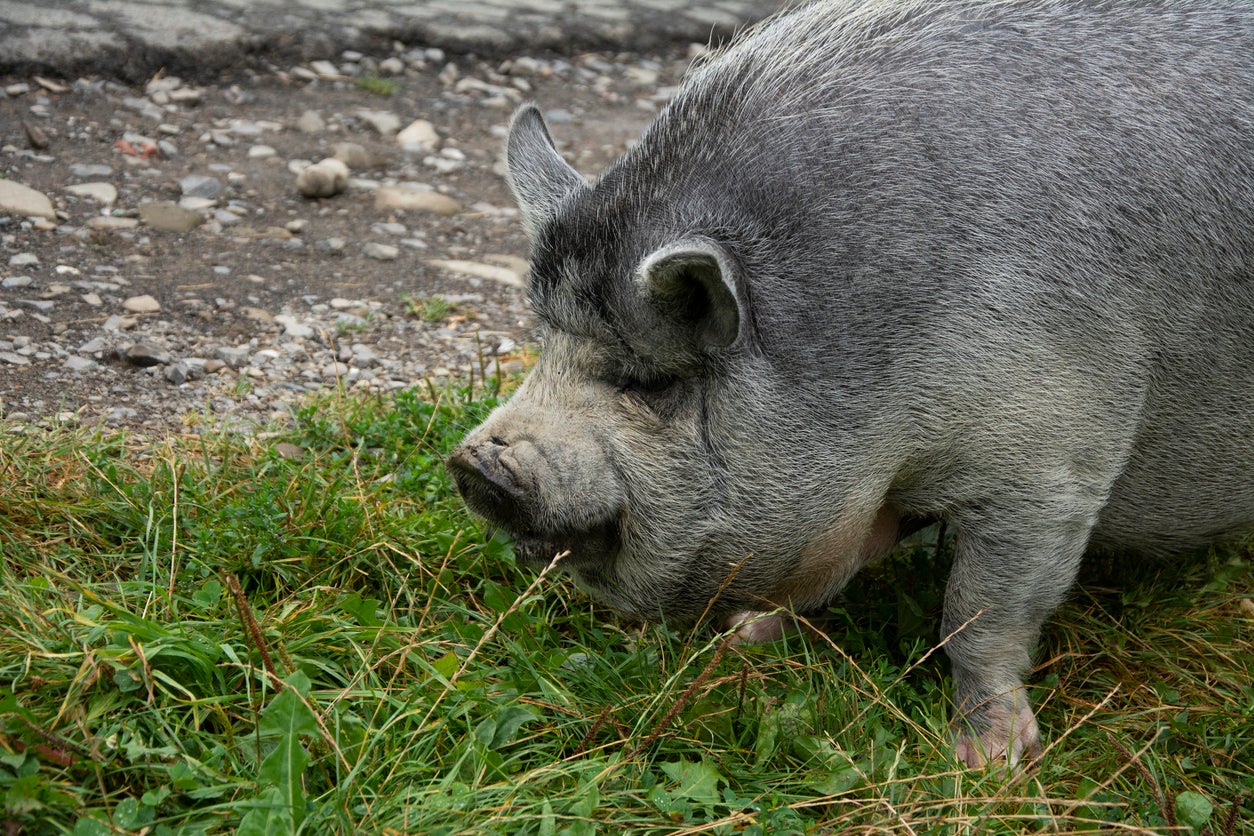Plants Pigs Can’t Eat: Information On Plants Harmful To Pigs


It’s easy to find lists of plants that can injure dogs. But if you happen to have a pet pig or if you raise pigs as livestock, don’t assume that the same list applies. What is poisonous to pigs? Plants harmful to pigs don’t always kill them. Read on for a list of plants that are toxic for pigs and those that will make pigs sick.
What is Poisonous to Pigs?
The list of plants harmful to pigs is a long one. Many plants that are toxic for pigs kill them quickly. They are so very poisonous to porkers that eating one leaf will kill them. Many will look similar to poisonous plant lists for humans like:
Others are common ornamentals you probably grow in your flower garden such as camellia, lantana and flax.
Other Plants That are Toxic for Pigs
Some plants are harmful to pigs but won’t kill them. When pigs eat these plants, they become sick but don’t usually die. These plants usually result in nausea or diarrhea. These range from small to tall, from sweet peas to redwood trees, eucalyptus and birches. Aloe vera makes the list and so does hyacinth and hydrangea.
Other bulb plants, flowers and berries that will make them sick include:
- Narcissus
- Easter Lily
- Tulips
- Daphne
- Lobelia
- Holly
- Elderberry
- Chinaberry
- Daisies
- Ranunculus
- Sweet William
- Daffodils
Other plants harmful to pigs are neither poisonous nor nauseating to the animals, but they are still plants pigs can’t eat since they can cause harm.
Some plants, like parsley, cause photosensitivity. Others, like begonias, calla lilies and philodendron, cause swelling of the mouth. Acorns can cause miscarriages in sows. If pigs eat stone fruits from the orchard, the pits can lodge in the small intestine. Similarly, if pigs chow down on unshelled walnuts, pieces of cracked shells can pierce the pharynx of the animal.
Gardening tips, videos, info and more delivered right to your inbox!
Sign up for the Gardening Know How newsletter today and receive a free copy of our e-book "How to Grow Delicious Tomatoes".
Pigs that are kept as livestock usually avoid eating poisonous forage plants. These plants tend to taste bitter, so pigs only eat them as a last resort if all other forage plants are eaten or destroyed.

Teo Spengler is a master gardener and a docent at the San Francisco Botanical Garden, where she hosts public tours. She has studied horticulture and written about nature, trees, plants, and gardening for more than two decades. Her extended family includes some 30 houseplants and hundreds of outdoor plants, including 250 trees, which are her main passion. Spengler currently splits her life between San Francisco and the French Basque Country, though she was raised in Alaska, giving her experience of gardening in a range of climates.
-
 Looking For Plants To Give You The Soft And Fuzzies? Try These 5 Fuzzy Leaf Plant Options
Looking For Plants To Give You The Soft And Fuzzies? Try These 5 Fuzzy Leaf Plant OptionsLovers of texture, drama, silver foliage and tactile plants will adore these special sensory garden additions. These fuzzy leaf plant options will leave you all aglow
By Susan Albert
-
 Get Ready For A Summer Of Hummers! Grow These Full Sun Hummingbird Plants and Flowers
Get Ready For A Summer Of Hummers! Grow These Full Sun Hummingbird Plants and FlowersIf you’re lucky enough to enjoy a sunny backyard, make sure you are maxing out on your pollinator opportunities and grow these full sun hummingbird plants and flowers
By Tonya Barnett